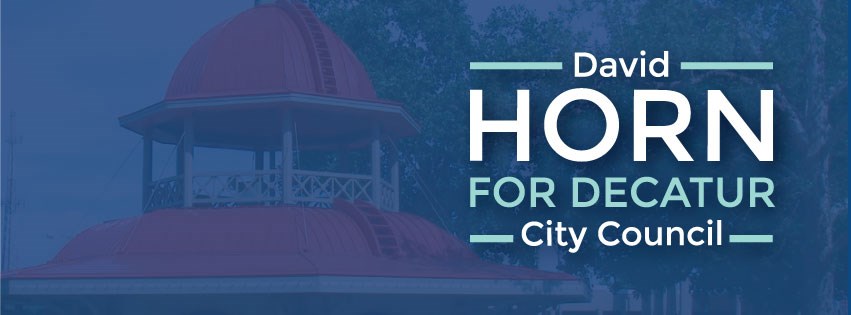
As national day of racial healing nears city council must do more
January 17 is the National Day of Racial Healing. According to the National League of Cities, “Through racial healing, we can forge deep, meaningful relationships, lay the groundwork to transform broken systems, and bridge the divides to transform communities for our children and future generations. Racial healing is not only important, but also essential. Because healing is at the heart of racial equity.”
Decatur does not have racial equity. Using data from the U.S. Census Bureau’s 2020 American Community Survey, two local reports reveal that the median household income was $47,854 for White households, $42,143 for Latino households, and $25,250 for Black households. In 2020, 33.2% of Black individuals, 27.5% of Latino individuals, and 13.8% of White individuals were experiencing poverty. The unemployment rate was 15.8% for Latino Americans, 14.7% for Black Americans, and 7.1% for White Americans. White Americans owned 84.4% of the owner-occupied housing units and comprised 62.9% of the population, Black Americans owned 11.2% of the housing units and comprised 26.4% of the population, and Latino Americans owned 1.4% of the housing units and comprised 3.1% of the population.
The time has come for the city council to begin having open, public conversations about racial disparities. The time has come for the city council to review its city codes and its ordinances to ensure that policies do not differentially impact people based on race.
CURRENT CITY COUNCIL POLICY CREATES BARRIERS
In April 2017, at a city council meeting preceding my swearing in, the council voted to approve a process making it more difficult for items to be placed on the council agenda. Under the current system, agenda items require the consent of the Mayor, City Manager, or 4 of the 6 remaining council members. The effect of this policy has been to reduce the ability of minority voices to be heard and for important issues to be discussed. From the lens of racial equity, it could be argued that the policy is a form of institutional racism as defined by the National League of Cities – “Policies, practices and procedures that work better for white people than for people of color, often unintentionally or inadvertently.”
CURRENT CITY ORDINANCES CREATE BARRIERS
Last year, the city council voted to “allow” food trucks in downtown Decatur. Food trucks in Decatur are more likely to be minority-owned than other types of businesses. Unfortunately, the ordinance is so restrictive as to have no impact on the number of food trucks downtown. Among the new regulations: a new $500 fee to operate has been added, food trucks must provide access to restroom facilities within 300 ft. of the food truck, and the ordinance only applies to private downtown parking lots, not public spaces such as those around Central Park. Thus, what was to be a wonderful benefit to the citizens of Decatur who would have more choices of where to eat has turned out to be a barrier to the growth of minority-owned businesses.
PREVIOUS AND CURRENT PRACTICES CREATE BARRIERS
As stated in the report “Equitable, Efficient, and Effective Code Enforcement – A Roadmap for Decatur, Illinois” by the Center for Community Progress, there is a need in Decatur for “… recognition that communities of color, and in many cases predominately Black communities, are those most impacted by problem properties. Without a deep understanding of how a legacy of racist laws and policies have harmed communities of color in Decatur, code enforcement risks compounding the problem.” Unfortunately, while this report was provided to city staff in June 2022, it was not released to the city council and public until January 2023, after the city council passed its 2023 budget and could have allocated resources to address problems.
THE CITY COUNCIL NEEDS COURAGEOUS AND ASPIRATIONAL ACTION TO REDUCE RACIAL DISPARITIES
It is time for the Decatur City Council to facilitate courageous and aspirational action that will create a city that is inclusive, equitable, and safe for all. There is a need for the Decatur City Council to have more open, transparent, and what is likely to be uncomfortable dialogue. Conversations should be followed by action to identify and remove structural barriers to achieve racial equity. I hope that the National Day of Racial Healing is a catalyst for action.
